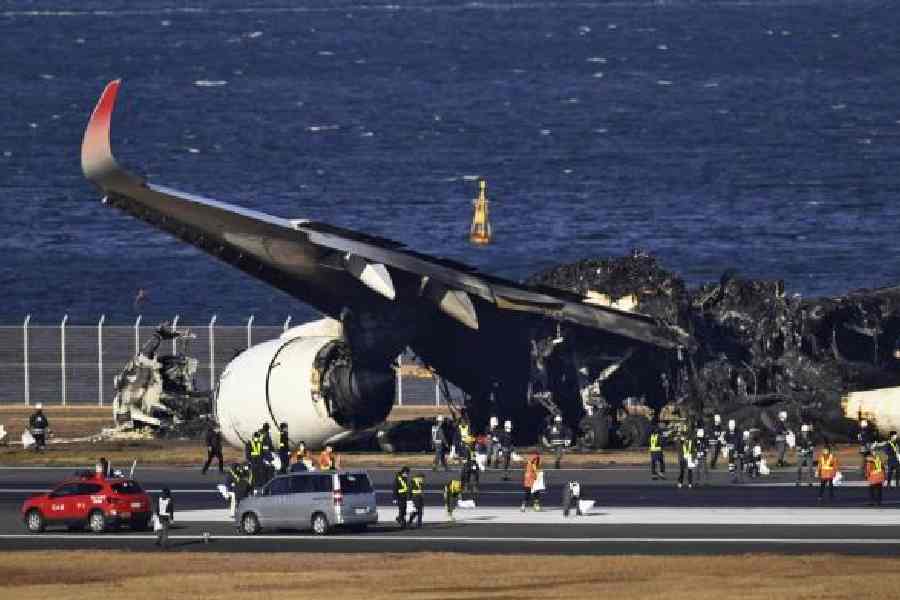A Coast Guard plane was making its third emergency trip to an earthquake zone within 24 hours when it collided with a passenger jet at a very busy Haneda airport, a Coast Guard official told Reuters.
The official declined to be named due to an ongoing investigation into the runway crash between the De Havilland Dash-8 turboprop and a Japan Airlines Airbus A350 passenger jet. Five of the six Coast Guard crew died but all 379 people on the JAL plane escaped. Details of the Coast Guard plane’s movements before the collision have not previously been reported.
The surviving pilot from the Coast Guard crew is under scrutiny after authorities released control tower transcripts appearing to show he was ordered to enter a holding area near the runway before the crash occurred.
He said he had permission to enter the runway where the Japan Airlines (JAL) plane was landing, the Coast Guard said on Wednesday, acknowledging there was no indication of that in the transcripts.
It is unclear whether the volume of airport traffic or the emergency response to the earthquake that struck late afternoon on January 1, destroying thousands of homes and killing at least 84 people, were factors in the accident.
Aviation experts say airplane accidents usually involve multiple variables and the failure of several safety guardrails.
In the 24 hours before the collision, the Coast Guard aircraft had already made two round trips from Haneda to the quake zone, a 3.5-hour survey of the area shortly after the magnitude 7.6 quake struck on January 1, and a flight carrying rescue workers that returned early on Jan. 2, the official said.
Reuters verified the timings with flight tracking data on adsbexchange.com.
Tokyo Haneda is the world’s third busiest airport, according to OAG, a UK-based travel industry data provider. Flight schedules data from Cirium analysed by Reuters showed an average of 1,290 flights departed and arrived at Haneda daily in December.
On the day of the accident, the airport was at full capacity, said Shigenori Hiraoka, director general of the Civil Aviation Bureau. It was no ordinary day for the Coast Guard either. The plane had that morning returned with a different crew from a mission taking relief workers to an area hit by the earthquake.











